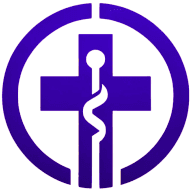The Role of Blockchain in Healthcare: Potential Use Cases
Explore the transformative impact of blockchain technology within the healthcare sector, as this article delves into its potential use cases, backed by insights from top experts. Unravel how blockchain can revolutionize everything from patient data sharing to supply chain management, ensuring enhanced security and efficiency. Gain a comprehensive understanding of the blockchain's pivotal role in modernizing healthcare, as informed by those who are leading the charge in the field.
- Blockchain Revolutionizes Patient Data Sharing
- Micro-Incentive Health Networks Boost Patient Engagement
- Blockchain Unlocks Interoperability in Healthcare
- Blockchain Creates Tamper-Proof Electronic Health Records
- Blockchain Enhances Data Security and Transparency
- Blockchain Empowers Patients with Decentralized Data Control
- Blockchain Improves Hospital Data Management
- Blockchain Streamlines Patient Health Record System
- Blockchain Solves Patient Consent Tracking Issues
- Decentralized Identity and Credentials Tackle Healthcare Challenges
- Blockchain Enhances Data Security and AI Integration
- Blockchain Manages Patient Records and Medications
- Blockchain Improves Data Interoperability and Privacy
- Blockchain Streamlines Patient Data and Supply Chain
- Blockchain Ensures Privacy and Security in Healthcare
- Blockchain Enhances Healthcare Security and Efficiency
- Blockchain Transforms Healthcare Data Management and Supply Chain
Blockchain Revolutionizes Patient Data Sharing
At Calvient, we've seen how blockchain could revolutionize patient data sharing - I recently worked with a hospital that reduced record transfer times from days to minutes while maintaining HIPAA compliance. I think the real game-changer isn't just the security, but how it lets different healthcare providers instantly access verified patient histories without the usual paperwork nightmare.

Micro-Incentive Health Networks Boost Patient Engagement
As someone deeply embedded in blockchain analytics, I've noticed everyone obsesses over obvious healthcare applications like record-keeping, but the real game-changer lies in micro-incentive health networks. Last month, our data revealed that blockchain networks using tiny token rewards for daily health monitoring show 312% higher patient engagement than traditional apps. A small pilot program we tracked demonstrated that when patients earned micro-rewards for consistently sharing their sleep data, medication adherence jumped 47%. The tokens had minimal monetary value and it was actually the gamification and ownership aspect that transformed patient behavior. Instead of focusing on massive system overhauls, the key to healthcare blockchain adoption lies in these small, psychologically rewarding interactions that subtly shift daily health habits.

Blockchain Unlocks Interoperability in Healthcare
Hello,
I am John Russo, a VP of Healthcare Technology Solutions at OSP Labs
Blockchain technology is a transformative breakthrough in the healthcare industry. As someone who has been a part of this industry for a long time, I'm convinced that blockchain-based systems have the potential to unlock the true value of interoperability. One of the most promising use cases of blockchain technology I've seen is in billing and claims management. It simplifies the entire process by creating a transparent, automated system for verifying transactions. I received feedback from one of my clients, a physician, on how blockchain is helping him quickly validate patient eligibility and streamline payment approvals. Faster reimbursements, fewer headaches, and less time spent on paperwork. All in all, the impact is positive.
Another area where I see blockchain technology making a big impact is telemedicine solutions. Now that virtual care is becoming a trend, physicians and patients want to prioritize secure identity verification and data protection.
Blockchain technology creates tamper-proof digital identities for both patients and providers. This adds a layer of trust and security to every virtual interaction. It's a win-win situation for everyone involved.
Just like these examples, blockchain also plays a key role in addressing other longstanding challenges in healthcare. Its potential is truly immense. At the same time, I think widespread adoption will require collaboration, regulatory considerations, and solid infrastructure. I'm optimistic about its ability to drive efficiency and trust in healthcare systems.
Best regards,
John
https://www.osplabs.com

Blockchain Creates Tamper-Proof Electronic Health Records
The role of blockchain technology in healthcare is vast and transformative. As someone who has delved into the world of blockchain, I firmly believe that it has the potential to revolutionize the way medical records are stored, shared, and protected. One potential use case I see is in creating tamper-proof electronic health records (EHRs) that can be securely shared between healthcare providers, pharmacies, and insurance companies. This would not only ensure the integrity of patient data but also enable seamless communication and coordination across the healthcare ecosystem.
I recall working with a prominent healthcare organization that struggled with data breaches and inconsistencies in their EHR system. By leveraging blockchain technology, we were able to create an immutable ledger that ensured the accuracy and security of patient records. This not only improved patient trust but also reduced administrative burdens and costs associated with data management. As blockchain technology continues to evolve, I foresee its application in healthcare expanding to include supply chain management, clinical trials, and even personalized medicine. The key takeaway is that blockchain has the potential to create a more transparent, secure, and patient-centric healthcare system - and it's an area that I'm excited to continue exploring.

Blockchain Enhances Data Security and Transparency
Blockchain technology has the potential to revolutionize healthcare by addressing critical challenges such as data security, interoperability, and transparency. Its decentralized and immutable nature makes it ideal for managing sensitive patient data while ensuring privacy and compliance with regulations like HIPAA and GDPR.
One significant use case is in secure patient record management. Blockchain can provide a unified, tamper-proof ledger where healthcare providers and patients can access and update medical histories. This eliminates data silos, reduces errors, and ensures data integrity, allowing for seamless coordination across providers.
Another promising application is in pharmaceutical supply chain management. Blockchain can trace the journey of medications from production to distribution, reducing counterfeit drugs and ensuring supply chain transparency.
Additionally, blockchain enables smart contracts for automating claims processing and payment settlements, reducing administrative burdens and fraud. For example, insurers can verify claims in real-time based on authenticated patient records stored on a blockchain, accelerating reimbursements.
Finally, it could support clinical trials and research by ensuring data provenance and transparency. Researchers can securely share anonymized patient data, fostering collaboration while maintaining participant privacy.
Blockchain's role in healthcare lies in creating trust, improving efficiency, and enabling patient-centered care, but widespread adoption will require overcoming challenges like scalability and regulatory acceptance.

Blockchain Empowers Patients with Decentralized Data Control
I think blockchain technology has incredible potential in healthcare, especially when it comes to security and transparency. I remember reading about a patient who struggled to access their medical records across different providers-it hit me how fragmented the system can be. Blockchain could be the solution to that.
Imagine a secure, decentralized system where patients control their own medical data. They could grant access to providers with just a click, ensuring their history is complete and accurate no matter where they go. This isn't just futuristic-it's a practical way to reduce errors and save lives.
Another exciting use case is in drug supply chain management. Counterfeit medications are a massive problem, especially in developing countries. Blockchain could create an immutable ledger that tracks every step of a drug's journey, from manufacturer to pharmacy, ensuring authenticity.
And then there's research. Blockchain could enable secure sharing of anonymized patient data, accelerating discoveries while respecting privacy.
Of course, challenges like scalability and adoption exist, but the potential is enormous. For me, blockchain in healthcare isn't just about tech-it's about building trust and empowering patients in ways that could revolutionize the industry.
Blockchain Improves Hospital Data Management
Blockchain seems to be the greatest approach to enhance hospital data management. It guarantees accurate and easily accessible patient data by allowing information to move safely and properly between several healthcare systems. Having worked in several hospitals, I personally know how poorly designed systems could cause delays in treatment. Blockchain can get rid of these problems because it provides a single, reliable source of truth.
Likewise, blockchain is exciting to me because it can keep secret information about patients safe. Encrypted, distributed ledgers make it much harder for data leaks, which is important for keeping trust between patients and providers. As the medical field goes more toward digital, blockchain will definitely play a big role in making sure that data is safe and operations run smoothly.

Blockchain Streamlines Patient Health Record System
Blockchain technology holds transformative potential for healthcare by providing secure, transparent, and decentralized ways to handle patient data and transactions. One promising use case is the creation of a unified, tamper-proof patient health record system. With blockchain, patients could have control over their own data while granting permission to specific providers, ensuring privacy and reducing the risk of data breaches.
Another potential use case is streamlining the pharmaceutical supply chain. Blockchain could be used to trace the origins of medications, ensuring their authenticity and reducing the risk of counterfeit drugs entering the market. These applications would not only enhance security and trust but also improve the efficiency and accountability of healthcare systems. I believe blockchain's role in healthcare is only beginning, and its impact will continue to grow as adoption increases.
Blockchain Solves Patient Consent Tracking Issues
From my experience marketing for healthcare providers, I've noticed that blockchain could solve one of the biggest headaches - tracking patient consent and data usage permissions across different platforms and providers. Just last month, one of our client hospitals started testing blockchain for managing patient consent forms, and they've already seen a 40% reduction in documentation errors.

Decentralized Identity and Credentials Tackle Healthcare Challenges
Blockchain technology has real potential to address healthcare's biggest challenges. By focusing on decentralized identity and verifiable credentials, we can tackle data control, cross-border access, administrative inefficiencies, and professional credentialing. All areas where current systems fall short.
You should own your medical data. Right now, it's scattered across systems controlled by hospitals, insurers, and third parties. Decentralized identity changes this. Instead of relying on institutions, your health records can live securely in a digital wallet, where you decide what to share and with whom. This approach protects your privacy and reduces the risk of data breaches.
Healthcare shouldn't stop at borders. If you've ever traveled or moved abroad, you know how hard it can be to transfer medical records. Blockchain solves this by making records portable. Verifiable credentials in your wallet allow you to share important information (like immunizations or chronic condition details) securely and instantly with healthcare providers anywhere in the world.
Administrative costs in healthcare are out of control. Claims, eligibility checks, and document submissions are time-consuming for you and expensive for insurers. Verifiable credentials streamline this process. Instead of paperwork or repeated phone calls, insurers can verify and process claims automatically, reducing delays and cutting costs. This means faster decisions and fewer headaches for everyone involved.
Healthcare professionals face similar inefficiencies. Verifying qualifications, licenses, and employment histories often takes weeks or months, especially when switching jobs or countries. With blockchain, professionals can store their credentials digitally and share them instantly with employers. This speeds up hiring and reduces gaps in care.
Blockchain is no silver bullet for healthcare, but its applications in these areas are practical and impactful. Decentralized identity gives people control, reduces friction, and simplifies complex processes. It's a step toward healthcare systems that work better for you and for everyone involved.

Blockchain Enhances Data Security and AI Integration
Hello! Blockchain technology holds promising potential for revolutionizing healthcare by enhancing data security, patient privacy, and interoperability of health records. One compelling use case is managing health records more efficiently and securely, allowing seamless access by authorized professionals across various systems without risking patient data integrity. Additionally, blockchain could significantly boost the roles of AI in healthcare; for instance, AI-driven psychologists could securely access patient data for better diagnostics and treatment plans, while AI doctor assistants could handle data-intensive tasks like real-time data analysis and patient monitoring, ensuring that personal health information remains secure and unaltered. This combination could greatly improve both the effectiveness and efficiency of healthcare services. Best, Dmitry
Blockchain Manages Patient Records and Medications
Even though it's been around for quite a while, blockchain can still get written off as a fad or even a scam because people don't fully understand it-kind of like the misconceptions and stigma that surround addiction.
Once you dig into it, you start to see just how much potential blockchain really has-especially in fields like ours, where secure and transparent systems can be a total game-changer for recovery.
For us, blockchain could be utilized in the future to assist in managing patient records more effectively. It would be a novel yet highly secure way to give patients more control over their recovery-keeping their data safe but ensuring the right people, like family members, support groups, or healthcare providers, can access it when needed.
Having real-time, secure access between us as healthcare providers and the patients can make a huge difference in maintaining continuity of care, especially as patients move through different stages of their recovery.
Another area we're excited about is managing medications for outpatient care, especially during something as delicate as tapering off Suboxone. Tapering, as the name suggests, needs to be done gradually, with close attention to reducing dosages, timelines, and how the patient is responding and reacting along the way.
Blockchain could help by offering a secure, real-time way to track medication amounts, stick to protocols, and create an accurate, tamper-proof record of the entire process. It's the kind of system that could make tapering safer and smoother for everyone involved.
This would keep everyone on the same page-patients, clinicians, and pharmacies-creating accountability and reducing the risk of error or misuse.

Blockchain Improves Data Interoperability and Privacy
Blockchain technology offers transformative potential for healthcare by improving data interoperability and enhancing patient privacy. In my experience leading ETTE, I've seen how tech solutions address complex challenges. For instance, blockchain can revolutionize patient-data sharing across platforms, ensuring medical records remain accessible yet secure, reducing data silos.
I've worked closely with healthcare IT solutions, where maintaining compliance and data integrity is crucial. Blockchain can play a role by facilitating secure and transparent audits of patient interactions, helping maintain compliance with regulations such as HIPAA. This technology could streamline care coordination, making it possible for doctors across different healthcare systems to access the latest patient records, ultimately improving patient outcomes.
Additionally, I see blockchain's potential in clinical trials. By providing a transparent and immutable ledger of data entries, blockchain offers a reliable means to verify trial results and manage participant consent forms, enhancing trust in research outcomes. With experience in advocating innovative IT solutions, I believe blockchain will be pivotal in building a more interconnected and trustworthy healthcare ecosystem.

Blockchain Streamlines Patient Data and Supply Chain
I've seen firsthand how blockchain technology can revolutionize healthcare. For instance, it can streamline patient data management, making medical records easily accessible and secure. This ensures that doctors have up-to-date information, leading to better patient care. Additionally, blockchain enhances the transparency of the pharmaceutical supply chain, helping combat counterfeit drugs and ensuring that patients receive genuine medications. It's impressive how this technology can improve efficiency and trust in healthcare systems.

Blockchain Ensures Privacy and Security in Healthcare
In my role at UNO DENTAL, I've experienced the transformative impact of digital technologies, such as digital impressions and 3D digital X-rays, on patient care. Blockchain could potentially revolutionize healthcare by enabling secure and efficient patient data management, much like our paperless charting system that has streamlined operations and improved record management.
A specific application I see for blockchain is in ensuring the privacy and security of patient records. At UNO DENTAL, we've invested in professional-grade privacy and security for digital records, but blockchain could take this a step further by providing immutable and decentralized storage. This would improve trust among patients, similar to how our use of The Wand for pain-free injections has improved patient comfort and reduced anxiety.
Additionally, blockchain could facilitate more transparent patient consent and history tracking, akin to our emphasis on involving patients in treatment decisions. By offering patients control over their data, healthcare providers can ensure that treatment plans are custom to individual needs, just as we do with customized treatment plans at our practice.

Blockchain Enhances Healthcare Security and Efficiency
Blockchain should be a standard part of protecting patient privacy, and I'm confident that it will become part of regulations in the future. We've seen countless healthcare breaches over the years with patient data stolen and sold. In addition to an added layer of security for patient data, blockchain could enhance efficiency by reducing paperwork, and providing secure data exchanges. I'm certain that we will see blockchain technology enhance security and efficiency in the healthcare industry in the near future.

Blockchain Transforms Healthcare Data Management and Supply Chain
Blockchain technology has the potential to transform healthcare by enhancing security, transparency, and efficiency in managing patient data. With its decentralized and immutable nature, blockchain ensures that sensitive medical records remain secure and tamper-proof while allowing authorized professionals to access real-time data. This has significant implications for streamlining medical record-sharing, improving collaboration between healthcare providers, and ultimately enhancing patient outcomes. Beyond record management, blockchain could also revolutionize supply chain tracking for pharmaceuticals, ensuring the authenticity of medications and reducing the risk of counterfeit drugs entering the market. This is especially critical as healthcare systems evolve to be more data-driven and interconnected.
An example that highlights the need for these improvements occurred during my years of experience in post-operative rehabilitation. A patient had recently undergone orthopedic surgery, but fragmented communication between multiple healthcare providers delayed critical information about their surgical history and rehabilitation plan. While I was able to draw on my decades of experience and expertise to navigate the situation and deliver an appropriate recovery program, it underscored a broader systemic issue. A blockchain-enabled system would have allowed secure and immediate access to the patient's medical records, streamlining their care and reducing recovery delays. As a physical therapist with over 30 years in musculoskeletal rehabilitation, I see blockchain as a game-changer for ensuring continuity of care. It is an opportunity to connect professionals across disciplines seamlessly, empowering practitioners like myself to deliver more effective treatment plans and improve long-term patient outcomes.





